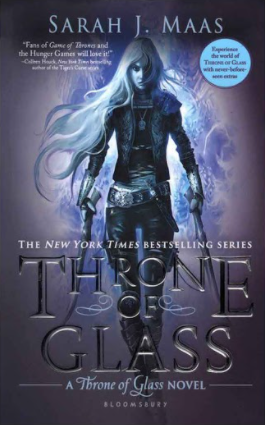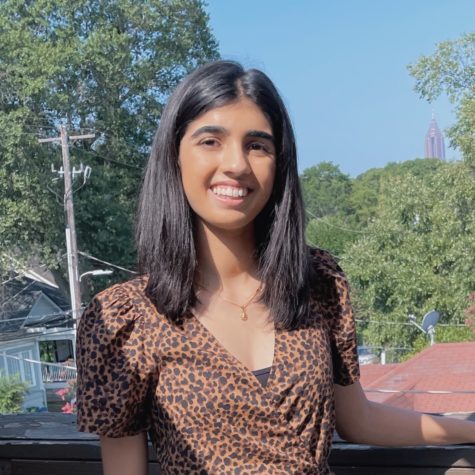Lakhiani: Literature is ignoring BIPOC and the LGBTQIA+ community

It is inexcusable that one of the only BIPOC in the “Throne of Glass” series is tokenized.
November 20, 2020
In English classes throughout high school, my classmates and I mainly read so-called classics centered around white male characters. At the time, I couldn’t figure out why it irked me so much that we only read Eurocentric literature, but now I’ve realized it’s because of the lack of diversity and representation in these books that we analyzed in depth.
It’s not so much that we shouldn’t read classics such as “The Great Gatsby” or “Jane Eyre,” but instead, we should read beyond just those white-centric novels. Several classic stories have been written by writers not of European descent. Reading books from those authors, like Gabriel García Márquez or Leslie Marmon Silko, does not make someone less knowledgeable or well-read than those who solely read William Shakespeare or Ernest Hemmingway; if anything, it expands their views and makes them more knowledgeable.
This issue starts before high school, at a young age. The storybooks and chapter books I read as a kid never included people who looked like me or practiced the same religion. Those books also never had representation for the LGBTQIA+ community, instead showing only straight parents or cisgendered individuals. According to book publisher Lee & Low, from 1994 to 2017, only 13% of children’s literature contained multicultural content and people of color wrote only 7% of children’s literature. Diverse kids who do not fit the societal norm of white, cisgender and straight are not growing up with the representation they need, which can be harmful to how they view themselves in society.
When there happens to be diversity in books, especially young adult (YA) novels, those characters are mostly tokenized by white authors. In the popular series “Throne of Glass” by Sarah J. Maas, Nehemia, a Black, Indigenous and Person of Color (BIPOC) character, is introduced. But by the end of the second book in the series, she is killed off. While it is arguable that this character needed to die for the plot, it is inexcusable that one of the only BIPOC in the books is tokenized by not playing a very active role and not being well-developed in the story. Yet, when people, especially BIPOC, attempt to speak out, saying that Maas is problematic with her lack of representation in books, they are silenced and bullied. There is a difference between liking a series and defending the author without acknowledging problematic issues.
In the YA world, white authors are significantly uplifted and popularized, while LGTBQ+ and BIPOC authors are not getting the credit and popularity they deserve. On social media platforms such as on Tiktok or Twitter, the same series is continuously discussed, despite being called out for the lack of representation in both platforms’ posts. On TikTok (or BookTok), problematic authors such as Maas, Cassandra Clare and J.K. Rowling are celebrated. These authors don’t include much diversity in their books, plus they can be problematic, such as J.K. Rowling’s transphobia.
The same series and authors keep being defended and recommended instead of actual non-problematic books written by BIPOC and LGBTQIA+ authors with more diverse characters.
People question why representation matters when they are “just books” and we may change things in our imagination anyway, especially on BookTok. This statement is harmful to marginalized communities because it doesn’t acknowledge the struggles and oppression they face in the literary community and the real world. How can someone imagine a white character as Asian when described explicitly with features and a background that would be ignored if conceived as a different race? And by applying this logic, any BIPOC or LGBTQIA+ character could be imagined as someone else when they are specifically written to highlight and acknowledge those identities that have long been ignored.
Representation is just as important in literature as it is in other forms in life, such as media, workplaces, positions of power, etc. By not including representation in books, it’s damaging to marginalized communities.
Lack of representation isn’t anything new, but it’s not as often acknowledged in the literary world. BIPOC and LGTBQ+ authors and books aren’t as uplifted in literature, including in English classes. In general, American education isn’t designed for non-white and non-straight people—even history classes are mainly Eurocentric. We should be taught and read BIPOC and LGBTQIA+ literature instead of just solely perpetuating white, straight and cisgender societal norms. In doing so, we can uplift marginalized communities and decrease ignorance by expanding our perspectives.


